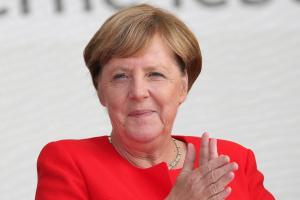The German government presented plans to cut pollution from diesel vehicles by asking carmakers to offer owners trade-in incentives and hardware fixes, prompting objections from environmental groups and grudging concessions from the industry.
After marathon talks, Chancellor Angela Merkel and leaders of her coalition partners announced in the early hours of Tuesday they had agreed on a way to cut pollution in the worst-affected German cities while avoiding unpopular driving bans.
Owners of millions of older diesel vehicles in Germany’s 14 most polluted cities should be able to choose between trade-in sweeteners and hardware upgrades for their vehicles.
Carmakers, however, did not all commit to covering the cost of retrofits, as the hardware fixes are known, which could run into billions of euros.
They said instead the focus should be on encouraging car owners to trade in their older diesel models for cleaner vehicles – which would bring a boost in sales, albeit at discounted prices.
Daimler (DAIGn.DE) gave arguably the strongest backing, saying it was prepared to participate in the retrofit programme and offering incentives of up to 10,000 euros ($11,564) for those swapping old cars for new Mercedes models.
“We are convinced that emissions of nitrogen oxide can be controlled in cities with modern diesel and without driving bans,” said Daimler CEO Dieter Zetsche, referring to diesel byproducts that can cause respiratory ailments.
BMW also said it would offer a trade-in incentive of 6,000 euros in the most polluted parts of the country.
France’s Renault (RENA.PA) said earlier on Tuesday it was offering owners of older diesel vehicles in Germany incentives of up to 10,000 euros if they bought new cars.


